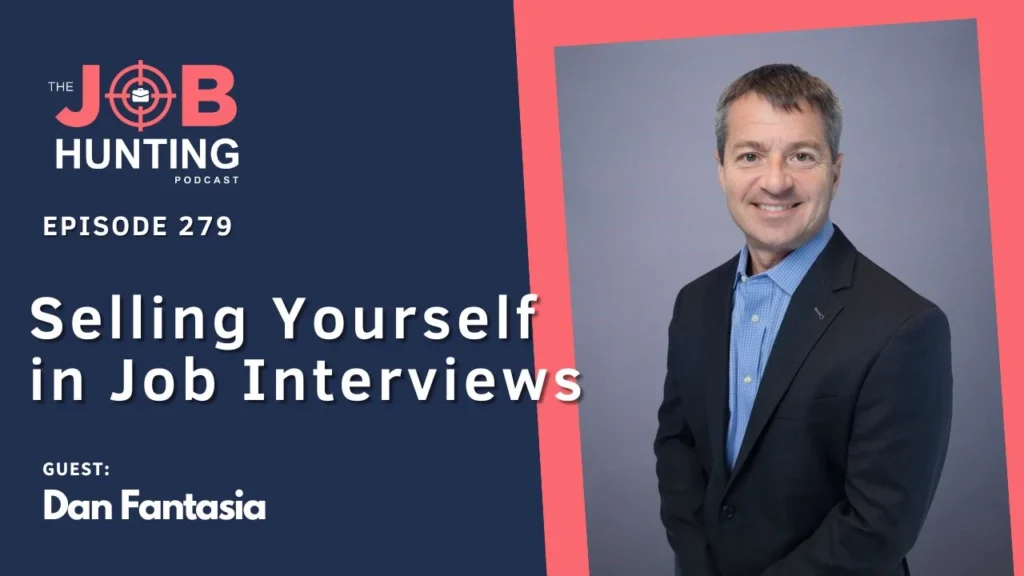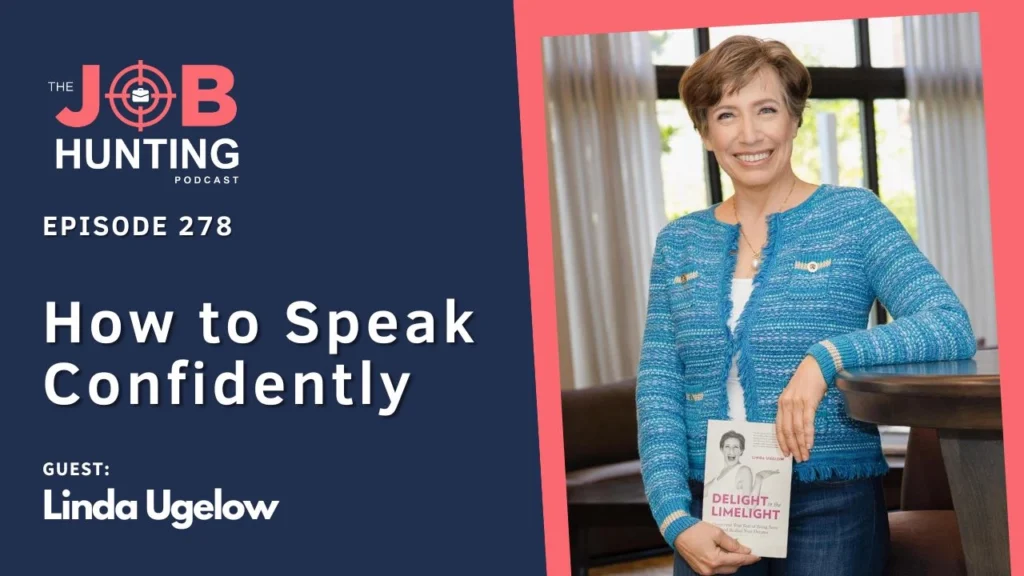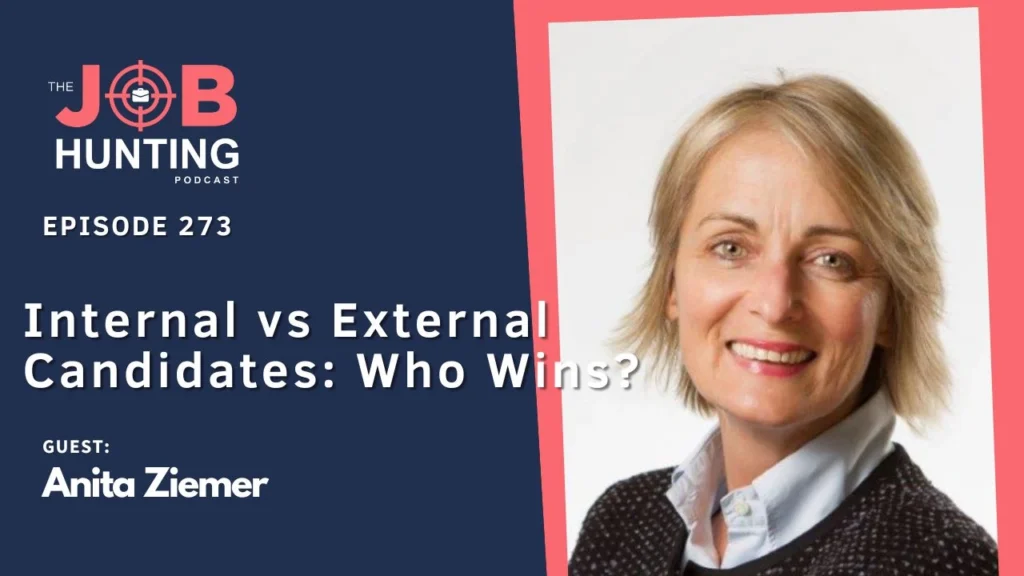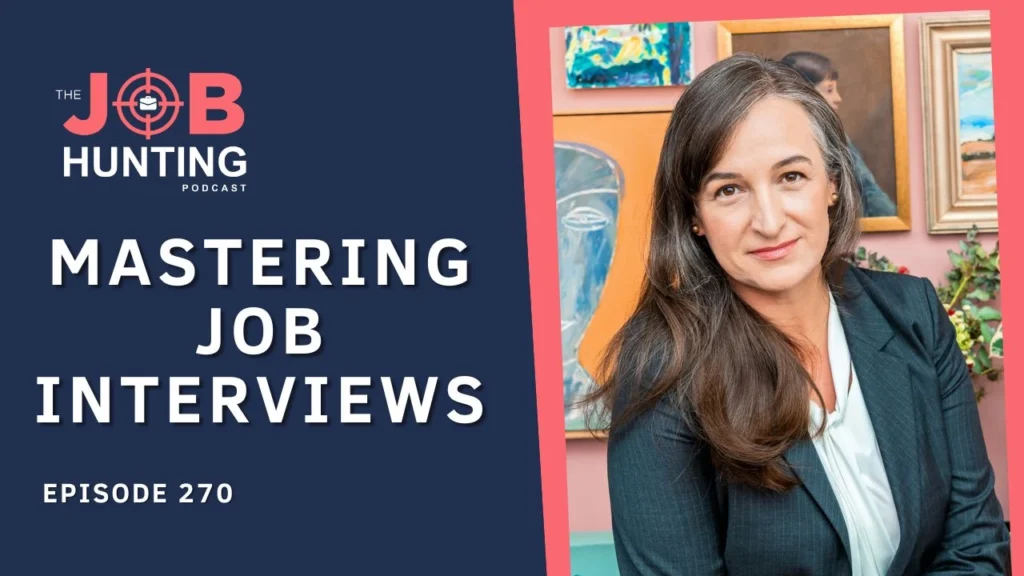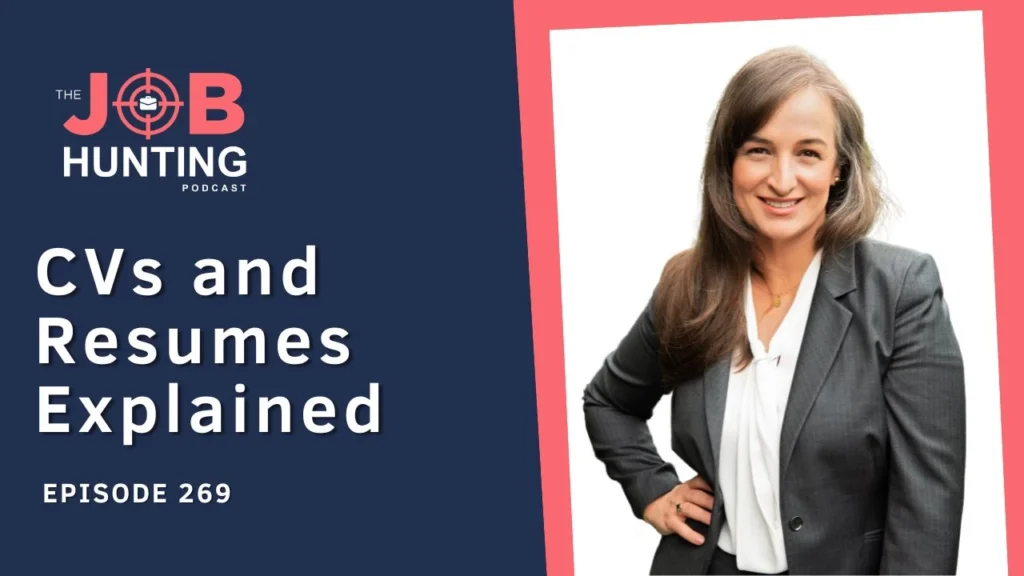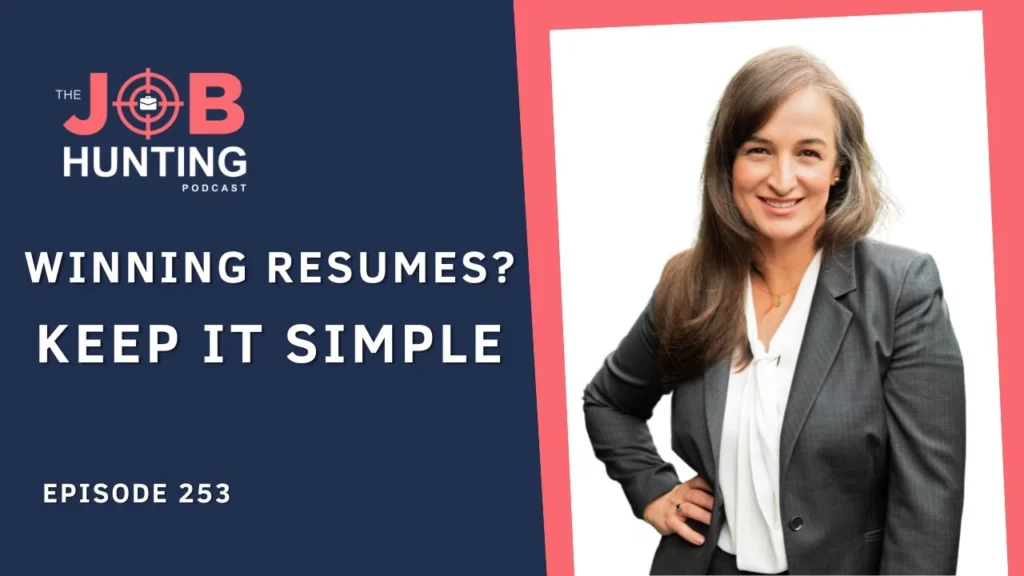Hello, everyone. Welcome back to the podcast. I was just thinking about something that I need to share with you. It’s so frustrating when I plan ahead for the topics I want to discuss, do my research, organize my notes, and then suddenly I don’t want to record about it anymore.
I find something else I want to talk about, and oh, it’s so frustrating, but I have ideas for this podcast all the time. Some people think it’s really hard for me to come up with these ideas, but it’s not. If anything, I have more ideas than weeks in the year to share with you—topics for your career and to support your job hunting.
It’s crazy. So this time, I’m trying to merge something that’s been on my mind with an article I read a few weeks ago. I can’t remember exactly when this article was written, but it’s definitely something I found not too long ago. I liked the title; it appealed to me and I’m going to react to it.
This is a reaction podcast episode. It was written by a freelance writer named Johanna Ambrosio, an IT freelance writer, who wrote an article about the 12 job hunting mistakes no IT leader should make, and I’m going to link it below. If you’re in IT, you’ll find this very useful. I’m going to change this to job hunting mistakes that senior executives make, which I see them making all the time and they shouldn’t. I really resonated with what Johanna wrote here and I wanted to react to her headings and the things she said under each of the headings. Then, at the end of this episode, I have a few things that I have been reacting to as well from consultations with clients—people that reach out to me, wanting to work with me.
And I’m going to share with you what those mistakes are. Because ideally, of course, I want to work with you. If you’re ready for career coaching, come talk to me. If you’re ready for my online courses or my services like LinkedIn audit, check out the website, sign up. But there are some things that you can fix easily. I think the difference is, I’m coming up with an analogy here. The difference is when you go to a GP, a general practitioner, because you have some illness, and the GP fixes it straight away, right? It’s easy to fix. Try this medication or this physio exercise. See if it helps, and then, you know, you can move on. I want you to try these little fixes. See if it helps and if it doesn’t, then reach out to me because that will be more fun and a better investment for you and a better use of my time. So many times I repeat myself a lot in consultations because people perceive their problems to be unique to them when, in fact, they are common among many job seekers.
Lots of people have questions and issues just like yours, and that’s why investing in a very affordable online course like my Research or Career could probably solve your career issues. It’s because I’ve amalgamated all these common problems people have, and I put together a little course.
You can do it, and maybe some of the things in the course you already know, tick, tick, tick, don’t worry about them, but there will probably be things there that you hadn’t thought about and it could be a solution for your problem. All right, let’s start with Johanna’s first grandiose headline here.
Going grandiose is her first mistake, one of the 12 that she listed in her article, “12 Mistakes IT Professionals Make When They’re Job Seeking.” And I think she’s right. Going grandiose, I’m going to define it soon, but I think going grandiose has been exacerbated now when professionals use.
ChatGPT often has a very grandiose narrative. Have you noticed? Please hit me up on LinkedIn, DM me on LinkedIn, or message me on X or IG if you feel the same. When you upload a draft of your resume or add your LinkedIn profile to ChatGPT and ask it to generate your cover letter or resume, it can come out sounding overly grandiose, and you have to be careful because sometimes it just makes things up, so you really have to be vigilant.
Going grandiose is a problem I see with candidates. Yes, you have done amazing things in your careers, but some candidates rewrite their resumes in a way that oversells themselves, which doesn’t look right and doesn’t appeal to recruiters either.
Even the words you use can end up overselling in a way that doesn’t appeal. Employers don’t really care about a couple of things that might have been really important to you, like many awards you achieved or high marks early in your career or in your master’s.
The best solution is super simple: don’t try to add. Let the facts speak for themselves and trust them. You have had an amazing career; you don’t need to oversell it to be shortlisted for a role. It’s more about understanding the technicality of how the recruitment process works—both the technical software side of things and from the perspective of the recruiter, the hiring manager.
What I mean by that is your resume will most likely be read by both bots and humans, and you need to know how to appeal to both. Being grandiose in your language and the way you portray yourself usually doesn’t make any difference to bots and might be detrimental to how humans perceive you. So I hope that clears it up. It’s hard to find the language to talk about yourself. We’re going to continue to talk about that with the next big mistake from this article: failing to back up your claims.
This is so interesting because I work with a lot of senior executives who have achieved a lot and they do have metrics to show because, especially at their level, they have been in leadership positions, so they could feel even more comfortable backing up claims, right? But they don’t. Usually, they write things like, “I’m a great problem solver,” or “I’m a visionary leader.” Johanna mentions in the article, for instance, someone claiming to be a “visionary innovator.” But where are the metrics to back up your claims? It’s really important to show those receipts, to show the metrics.
“I have taken an organization from A to B. I have led a project that achieved X percent or XYZ outcomes.” You have to back up those claims in dot points somewhere along the line, it could be on the first page where you’re making your claim to fame, or it could be under each of your roles.
So in those job descriptions, I would strongly recommend not using grandiose language or non-specific language. Instead, focus your attention on using more specific accomplishments and metrics, especially those that have a story arc that takes an organization from A to B. That’s what recruiters and hiring managers love to see.
The third mistake listed in this article is misunderstanding what makes a good interview. I see this happening a lot with more experienced professionals. They continue to prepare for interviews in the same way that a young graduate might prepare for an interview. So putting a lot of emphasis on preparing for behavioral questions, for example, which are important, people should know there is a formula for answering questions that involves describing the problem, solving the problem, and showing the outcomes. You can use the STAR format—Situation, Task, Action, Result. I find that for more experienced professionals, it’s often more of a Situation, Strategy, Action, Result, because you might not have a task as much as you are designing and developing solutions more strategically and with a broader scope.
But either way, what we’re saying here is that interviews at a more senior, more experienced level require you to have a better understanding of people’s body language, more emotional intelligence, and an understanding of what’s going on in the room. It’s about letting people talk.
One thing I hear a lot from my clients is, “Oh, I went for the interview and the CEO talked the entire time, and I didn’t say a word.” That is not necessarily a bad interview. It’s important to understand that at that level, things are less structured, and it’s more of a conversation.
If, for example, you’re applying for a Head of Marketing position or a CFO position, and you’re dealing directly with your future manager, who could be the CEO, if he’s talking the whole time and not allowing you to speak much, that doesn’t mean you’re not going to get the job. That is more a reflection point for you to check if this is the sort of leadership you want to work for because that’s his or her personality. And that’s probably how it’s going to be after you get the job. So, it goes both ways. Misunderstanding that a good interview is as much about you interviewing them as them interviewing you is a common mistake. As you move up the corporate ladder, these things do matter.
You need the ability to exert your leadership style, work in a culture that suits you, and aligns with your career ambitions. As we gain more experience, we actually become pickier with culture, values, purpose, and ambition. We have less time to achieve our career goals.
So, understanding what makes a good interview for those more senior roles is crucial, and it’s a mistake I see happening quite often.
Overlooking the power of practice—oh, my dear Lord. That’s why when I read this part of the article from Johanna, by the way, it’s in CIO Magazine and she has other articles as well, I was reminded of its importance.
People just don’t practice enough. They don’t practice for job interviews or for important conversations that can make or break a decision maker’s ability to understand you.
That important first conversation with a recruiter—how many times have I heard from my clients that they didn’t realize that conversation was so critical? Now, working with me, we practice for that first conversation. And you need to be prepared. Nobody’s going to book a time; most likely, it’s just a call that you get out of the blue, and it could be from the recruiter or the CEO, like a client of mine recently experienced when he applied for a senior IT manager role and the CEO of the organization called him out of the blue.
On a Thursday afternoon before Easter, he had to answer some important questions right there and then, which would help this person decide who she wanted to shortlist for deeper conversations. You have to be ready, and that practice is preparatory work. That’s why coaching is so important—it prepares you for your job search to flow more smoothly and for you not to feel as overwhelmed and stressed as you would if you hadn’t prepared.
It’s not to say that you can’t do it on your own, which is why I’m sharing this with you, but overlooking the power of practicing for your job search, interviews, and conversations is a big mistake.
Then, the next mistake is not seeing yourself clearly. This is very common for very experienced professionals who do not see themselves clearly. They don’t know if they are generalists or experts, or if they are good at leading people or projects, and what they want in their careers from this point onwards. I’m talking about people with extensive professional experience—people in their forties, fifties, and sixties who reach out to me.
It’s interesting because you might think that more experienced people would have these things sorted out, but no, they reach out to me because they want to sort these things out. They want to start taking control of their career so that the next two decades, which could probably be the final decades of their career, are intentional. They want to move mindfully towards both their financial and professional goals, which often go hand in hand.
Looking for opportunities both internally and externally really requires professionals to understand themselves so that they can articulate what they are trying to achieve in the short term and in the long term. Good recruiters and headhunters will ask you what you want to achieve in 10 years, in five years, and having a crisp, clear answer to those important questions is crucial for the recruiter.
It’s one of the ways they assess you vis-à-vis the assignment they have from their clients. You might be a great match based on your answers to those questions. If not, it’s not the end of the world; you might be a good match for some other clients of theirs.
It’s important for the recruiter to understand you well so that they can help you in your career, keeping in mind that you’re not their client, but it’s beneficial for recruiters to have strong connections with good candidates like yourself. Then, when they have new assignments, they can tell their clients, the employers, “Look, I have some great people to introduce you to right away.”
So, telling them what you want is really important.
Failing to have foresight is the next mistake listed in this article. This is why I think I should be friends with this woman because, if you’ve been a long-time listener of the podcast, you know that I talk about foresight a lot, right? Foresight is very different from forecast.
Forecasting is based on past data that you use to understand the future. We know now that although forecasting is and will continue to be important, foresight is what great leaders need to have to deal with the fast-paced changes that are happening in the workforce, in industries, and in the world, really.
Having that foresight to anticipate issues, to be agile when things happen very quickly and you need to adapt, whether that’s losing a job, having your role completely changed, reporting to someone else, or understanding that in five years, half of your workforce might be AI and not humans, is essential. You need to understand and anticipate these changes and be prepared.
Johanna advises finding a mentor who can act as a career sherpa to guide you in investing your professional capital. I agree with this and often find that people assume a mentor should be someone older. However, to develop great foresight, it’s beneficial to surround yourself with a diverse ‘boardroom’ of mentors from various ages and backgrounds to avoid getting stuck in the past with potentially conservative views. I often gain valuable insights from people much younger than myself, and mixing these perspectives is crucial. This concept isn’t new—I recall reading about similar practices at General Motors during the 80s and 90s, where younger individuals mentored older professionals. It’s more important than ever to adopt this approach now.
The next mistake listed in the article is getting rusty on technology, which is a big pet peeve of mine. Interestingly, it’s not as noticeable in consultations as it is when people book a time to talk to me as a prospective client. I can see how rusty they are with technology because I use Zoom, which is really easy to use.
Everyone should know how to use Zoom and Teams. If you can switch seamlessly between the two, ensure your camera and microphone work, and get the audio right straight away, then you’re set. However, I find that eight times out of ten, when people book a time to see me, things don’t go smoothly. They might be at home with insufficient internet speeds, causing freezing and gaps in communication. They struggle to operate their cameras or change their audio settings, which is unacceptable in today’s world where most interviews are likely to be conducted online.
Typically, people now work hybridly with a work laptop that is up-to-date, and everything works well there. But when they want to talk to me, they often switch to their old personal PC that they haven’t used for anything else, leading to technical issues. They then have to switch back to their phones or work PCs to continue the conversation.
You need to stay current with your technology. This is just the tip of the iceberg, as many professions face significant technological challenges, whether it’s cybersecurity, AI, machine learning, cloud computing, or even basic tools like CRMs and project management software. People are increasingly using various Microsoft tools and other communication platforms like Slack extensively.
The next mistake is not honoring the job description. It’s so common for people to just skim through or read only the job title.
Oh, yep. That’s the job title I want. This is the organization that would suit me. People often get so excited about the organization and the job title that they actually forget to read the job description. And you can’t do that. There are so many details in the job description that will help you write a great cover letter and a resume.
Job descriptions are used for keywording into HES systems. So if you’re applying for a job in any financial institution, large manufacturing company, large retail company, government job, or higher education position these days, chances are it will go through an HES system first. Even if you have a connection within the organization that has told you about the job—usually more senior people sometimes get a call or are incentivized to apply—it still goes through the HES system and needs to perform well there.
So, honor the job description. Understand what it’s asking for in the next candidate, even if you have information and intelligence about who was doing that role before. I have a situation now where one of my clients is working for an organization and we have a feeling that the CEO is about to leave. Even if she knows a lot about the role and works for that organization, it doesn’t mean she knows what the board wants the next CEO to be like. There will be clues in the job description that will tell her what the board now wants in the next CEO, what stage the board believes the organization is at, and what type of CEO they need for that next stage of the organization. So never underestimate the job description.
Losing sight of the social media details is another interesting point because many of my executives don’t like social media. They don’t see LinkedIn as being social media, which sort of goes hand in hand with being rusty on tech and not understanding that social media now plays a big part in the research that organizations and recruiters will do about you. They will Google your name, they will see what comes up. So, you want all of your social media that is social to be private. And if you are comfortable with it being public, then know that your future employers and recruiters will be looking at it. So if that’s okay with you, that’s fine, but just know that that will happen. And then understand that LinkedIn is not just social media per se; it’s an important part of the recruitment process.
What you add there in your profile and in your activity is going to be added to what you’ve written in your cover letter and your resume. Being strategic about how you present yourself on LinkedIn, how your activity elevates your professionalism and expertise is really important.
Failing to read the room is part of that interview conversation we had before, but I think what I want to add here that I haven’t said yet is that I work mostly with middle managers and senior managers, not to say that young career professionals can’t work with me. It’s just that my expertise is in helping people in their late thirties, forties, fifties, and sixties. That’s where I like to work. My average client age is towards the late forties and my average client job titles range from heads of departments to directors. I also work with project and product managers.
What happens at that level, after you are very experienced, is that you might come into the room thinking people already know that you’re an expert in your field, and that is not the case. So there is a level of vulnerability that you need to accept if you want to change your mindset.
Even internally, if you’re going for a promotion, you might still need to accept that level of vulnerability. But if you’re going externally and you’re talking to people, even if you’ve been referred by a friend, a former manager, or a colleague, they still need to get to know you from the bottom up, right?
There are those initial conversations you need to have. Sometimes, people assume they will walk into a room and everyone will already know everything about them, love them, and be excited to see them. However, they are actually seeing more people, not just you.
Chances are, it’s rare that they’re only looking at one candidate. Usually, they’re considering two, three, four, or five options, and you need to make a good impression. It requires emotional intelligence to read the room, to understand, to be vulnerable, and to explicitly show your interest in the role.
Many people forget that. I think it’s a mix of maintaining the status quo and ego, but also fight and flight and just not knowing how to deal well with the stress of the situation.
The final mistake in this article is foregoing leveraging your network. I don’t know why it’s last; it should have been the first, because more experienced professionals really struggle with networking for job opportunities.
They often think that they need to be completely ready, have a perfect job, or be really desperate to reach out to their network. That’s not the case. I think reaching out to your network over time, nurturing them whether you need a job or not, and helping them as much as asking for advice is really important.
You should always tap into your network for advice, for mentoring, for intelligence about organizations. It doesn’t necessarily, and shouldn’t actually, just be about asking for a job. It’s not a bother. People love to give advice. They love to support and help others. It gives people a great feeling to know that you’ve asked them for help, that you need them for something.
And I think it’s really important to build those professional collegial conversations and friendships over time during your career. And look, if you don’t have that yet, it doesn’t mean you can’t start now. Remember, you probably have 10, 20, 30, 40 years ahead of you. So start now. Look back and see who you can reconnect with if you’ve lost touch with a few people.
I told you I was going to add a couple of my own mistakes to that list and I would love to get your views on this. These are mistakes I’m just typing up on my phone so I don’t forget because I knew I wanted to do a podcast about this. And then I saw this article as part of my research and I’m like, okay, I don’t have to come up with that many mistakes because this article already has so much great advice.
And I will just add a little bit more, and here it is.
The first mistake that a lot of professionals make, as I see it, is—and this will sound so trivial to some of you and I hope you can understand me—it’s not taking care of their email address. Dare I say it. It’s not the first time I say this. If you’ve been listening for a long time, you know I’m obsessed with email addresses.
I really am. But, the reason why I am obsessed with email addresses is because I know that recruiters make fun of them. And I know that even when people don’t make fun of your email address, if you have a weird one, it might be damaging your brand. So for example, often I have clients who want to move from academia into the corporate world.
Here in Australia, higher education is going through some changes and they have been making some academics redundant. They say to me, “Oh, you know, people will see me as an academic,” and I’m like, “Well, yes, we need to change that in your resume. But why don’t we start by changing it on your email address?”
If your email address labels you as “Dr. Renata Bernarde,” “Renata Bernarde PhD,” or “Professor Renata Bernarde,” it’s immediately signaling that you are an academic. I see this all the time. If you’re listening to this podcast and you’ve been talking to me, please know it’s not about you personally. I do encounter this at least once every fortnight.
The second point about emails is critical for those who want to emphasize their permanent residency in a new country to potential employers. If you’re from overseas and trying to find a job in Australia, for example, and your email address ends in a country-specific domain like “.br” for Brazil or “.es” for Spain, consider changing it. Opt for something like a simple “gmail dot com” address. Even email providers like “bigpond dot com” might seem outdated and can subtly suggest you’re not up-to-date with technology. And if you’re using a quirky or shared family email address, definitely get a new one. It’s crucial for making a professional first impression.
Now, speaking of first impressions, let’s talk about your LinkedIn profile. Your photo and the banner behind it are crucial. Why would you use a LinkedIn photo that is blurred, shows you wearing sunglasses, or clearly taken from a social outing rather than a professional setting? While you don’t necessarily need a photo taken by a professional photographer, consider it if you can’t find a good photo of yourself. Many phones today take excellent photos, but if it’s that difficult, getting it done professionally is worth it.
When people receive your job application, the first thing they often do is look you up on LinkedIn. If your photo is in black and white, you look unhappy, too serious, or it’s otherwise unprofessional, that’s a negative. As for LinkedIn banners, keep it simple. Some are overly fancy or packed with too much detail, which can detract from your professional image. Avoid taking risks with your banner; a simple, professional look is best. And definitely reconsider using a Canva banner for a job-seeking profile; they’re great for other purposes but may not convey the right professional tone for white-collar job seekers.
Finally, your LinkedIn headline is incredibly important. It’s essentially a set of keywords that represent you. Go to LinkedIn, use the search box, search for someone, and observe the list that appears. You’ll see people’s photos and just the first few words of their headlines—it doesn’t even show the entire headline. So, choose your words carefully to make an immediate, positive impact.
If your LinkedIn headline is filled with grandiose terms and doesn’t clearly state your job title or area of expertise, it will be more challenging for recruiters to find and consider you for specific roles like project manager, product manager, CIO, CFO, or financial controller. They are looking for candidates who fit specific roles for their clients, not just a “talented problem solver.” You can figure this out yourself or do a LinkedIn audit with me to ensure your profile is optimized.
The headline, along with your photo, are the first things recruiters see when researching candidates on LinkedIn. As I’ve explained repeatedly, this is how they find top candidates for especially middle management, senior roles, and executive positions.
That’s it for today’s episode. If you haven’t subscribed to the podcast yet, please do so now. Did you know that if you search for “Renata Bernarde” or “The Job Hunting Podcast” on Amazon—no matter what country you’re in—you can listen to the podcast for free. We are available everywhere: Apple Podcasts, Spotify, Audible, Amazon, iHeartRadio, and more.
Tell me, where do you listen to us? Or you can just listen on the blog, of course, because then you have access to the blog where you can read and get all the details, and check out my services. So, subscribe to the podcast, give it a five-star rating on Spotify. If you’re on Apple, remember to write something nice about us.
It’s so important for us. We’re also on YouTube. So, if you want to see me, today I’m wearing a purple jumper—it’s very cold here in Melbourne. If you want to see me, you can find me on YouTube. Bye for now, everybody. See you next week!


